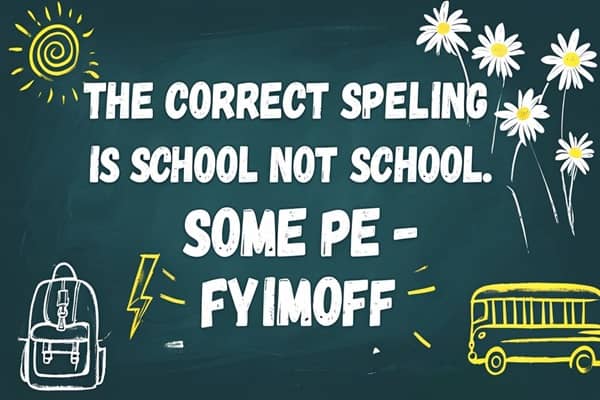The Correct Spelling is School not School. Some Pe – Tymoff

Spelling is a fundamental aspect of communication that often seems straightforward but can be surprisingly complex. One of the most commonly misspelled words is “school,” despite its simplicity. Understanding its history, common errors, and methods to improve spelling can enhance our communication skills and academic performance.
The Evolution of the Word “School”
The word “school” has a rich historical background that adds depth to its seemingly simple nature. It originates from the Greek word “scholē,” which initially meant “leisure” or “free time.” In ancient Greece, “scholē” referred to a space where people gathered for intellectual discussions and learning, emphasizing the leisurely pursuit of knowledge rather than formal education.
When the Romans adopted the term, its meaning evolved to represent a place of learning, which laid the foundation for its modern usage. Over time, as languages and cultures interacted, the concept of “school” became firmly associated with formal education and institutional learning. This historical journey highlights how the word has transformed from a concept of leisure to a cornerstone of academic and personal development.
Common Spelling Errors and Their Causes
Despite its straightforward spelling, “school” is frequently misspelled. Common errors include variations like “scool,” “schoo,” and “skool.” These mistakes often stem from a combination of phonetic confusion and typographical errors. The pronunciation of “school” can be tricky, with its blend of “sh” and “oo” sounds, leading to errors in spelling.
Technological aids, such as auto-correct features, play a significant role in spelling errors. Auto-correct is designed to correct misspellings based on algorithms and pre-set dictionaries. However, these tools are not foolproof and can sometimes introduce errors of their own. For instance, auto-correct might change “school” to “scool” if it misinterprets the intended word based on context or frequency of usage.
Moreover, varying auto-correct features across different platforms can lead to inconsistencies. While Google’s spell-checker is generally effective, it relies on algorithms that may not always catch every mistake or understand the context in which a word is used.
Improving Spelling Skills
Improving spelling skills involves several strategies that can help avoid common mistakes and enhance overall literacy. Here are some practical tips:
- Read Widely and Frequently: Exposure to correctly spelled words through reading helps reinforce their proper form. The more you read, the more familiar you become with the spelling of different words, including “school.”
- Practice Phonics and Letter-Sound Relationships: Understanding the relationship between letters and sounds is crucial for accurate spelling. Phonics instruction can help you grasp the nuances of how words are constructed, making it easier to spell them correctly.
- Use Mnemonics and Memory Aids: Mnemonics can be a powerful tool for remembering tricky spellings. For example, associating the word “school” with an image of a classroom or a memorable phrase can help solidify its correct spelling in your mind.
- Engage in Spelling Practice: Regular practice through writing exercises, spelling tests, and educational games can improve spelling skills. Writing out words repeatedly and testing yourself on their correct spelling can reinforce memory.
- Utilize Dictionaries and Spell-Check Tools: While auto-correct can be helpful, using traditional dictionaries and electronic spell-check tools provides an additional layer of support. Dictionaries offer definitive spellings and definitions, helping you verify and learn the correct forms.
The Role of Teachers and Educational Resources
Teachers play a vital role in emphasizing the importance of correct spelling. They provide students with tools and strategies to improve their spelling skills. Teachers often use word banks, spelling lists, and other resources to help students practice and master spelling.
Constructive criticism and feedback are essential components of the learning process. Teachers guide students in recognizing and correcting their mistakes, reinforcing the correct spelling through repeated practice.
Educational resources, such as spelling games and interactive exercises, can make learning to spell enjoyable and effective. Incorporating these tools into the classroom helps students engage with the material and retain spelling rules more effectively.
The Impact of Accurate Spelling on Communication
Accurate spelling is crucial for clear and effective communication. Misspellings can lead to misunderstandings and misinterpretations, which may impact the clarity of your message. For instance, misspelling “school” as “scool” can detract from the professionalism of an academic paper or formal document.
In professional and academic settings, correct spelling reflects attention to detail and a commitment to quality. It enhances the credibility of your writing and ensures that your ideas are communicated clearly. By paying attention to spelling, you contribute to more effective and respectful communication.
Balancing Technology and Traditional Methods
While technology offers many benefits, it is essential to balance digital aids with traditional methods of learning. Auto-correct and spell-check tools are useful but can sometimes lead to complacency. Relying solely on these tools might reduce the effort put into learning correct spelling.
Incorporating traditional methods, such as handwriting practice and manual spell-checking, helps develop a deeper understanding of spelling rules and conventions. This balanced approach ensures that you are not overly dependent on technology and can independently identify and correct spelling errors.
Conclusion
Mastering spelling, particularly for words like “school,” is an important aspect of effective communication and education. By understanding the historical context of the word, recognizing common spelling errors, and employing various strategies to improve spelling skills, you can enhance your writing and communication abilities.
Teachers, educational resources, and practice play critical roles in supporting spelling development. Balancing technological aids with traditional methods ensures a comprehensive approach to learning and mastering spelling. Ultimately, accurate spelling contributes to clearer, more professional communication and reflects a commitment to quality and attention to detail.



